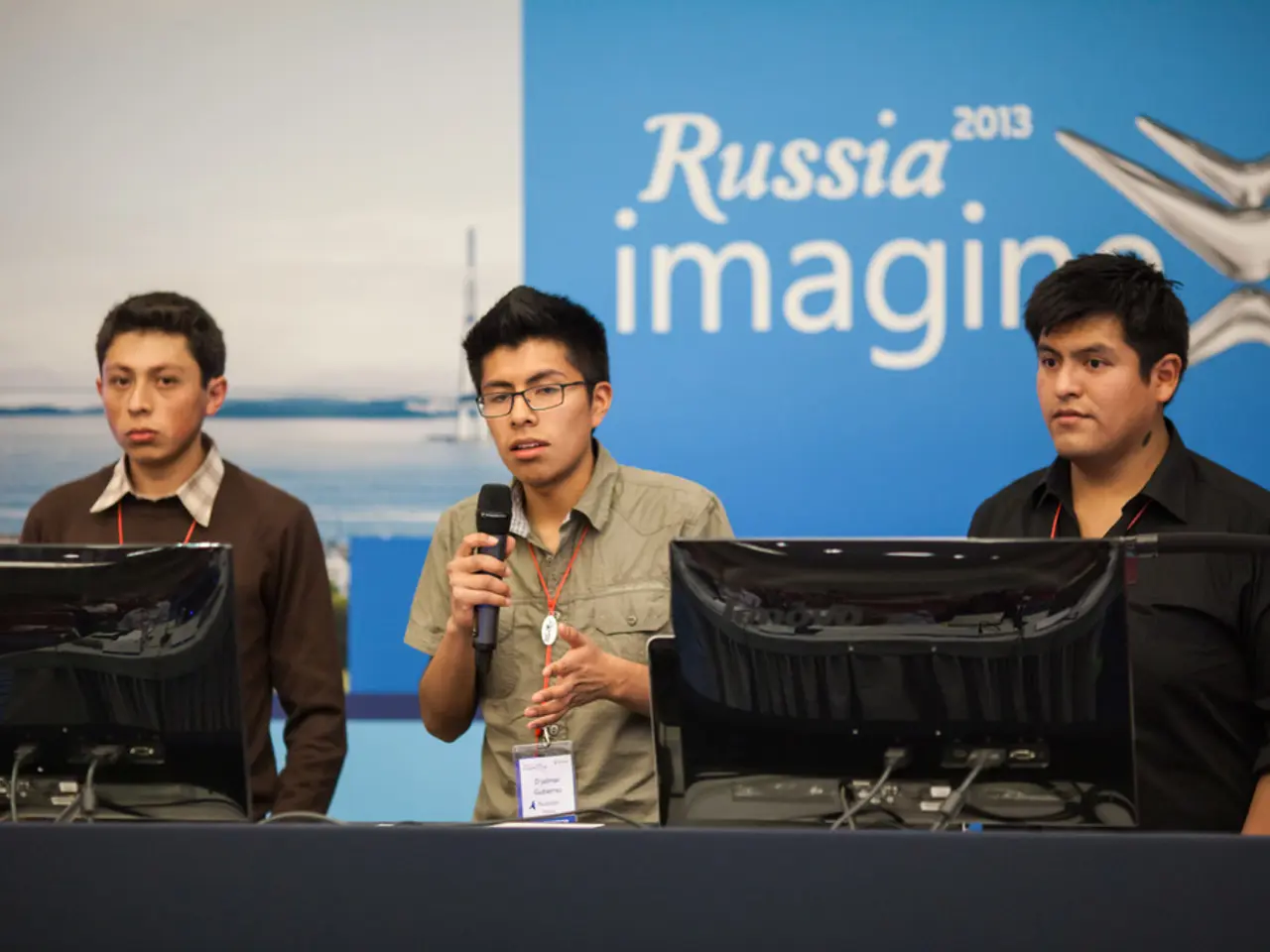Diplomatic figures in Europe advocate for a tripartite summit in response to the Trump-Putin meeting in Alaska.
The European Union (EU), the United States, and Ukraine are united in their approach to a potential peace agreement in the ongoing Ukraine conflict. The focus is on Ukraine's sovereignty, territorial integrity, and the necessity of Ukraine's consent in any peace deal. Skepticism about Russia's willingness to agree to a genuine peace permeates this diplomatic stance.
The EU, in a joint statement, insists on a just and lasting peace that respects international law, including Ukraine’s independence, sovereignty, and territorial integrity. The EU emphasizes that Ukraine must freely decide its own future, and no peace can be negotiated without Ukraine's involvement. The EU continues to support Ukraine politically, economically, militarily, and diplomatically, and is ready to contribute to security guarantees in coordination with allies but based on international law and member states' capabilities.
Ukraine, represented by President Volodymyr Zelenskyy, maintains that peace negotiations must respect Ukraine’s territorial integrity and sovereignty and insists that Ukraine must be central to any peace process. Ukraine has been reluctant to agree to territorial concessions, especially concerning the Donbas region, and stresses that diplomatic negotiations require a genuine cease-fire or reduction of hostilities beforehand. Ukrainian leadership strongly rejects any peace terms that would undermine its independence or EU membership goals.
The United States, under President Donald Trump, has shown some openness to a peace deal involving territorial compromises, particularly over parts of the Donbas region, as a potential basis for a cease-fire and peace agreement. However, the U.S. approach has shifted away from simply pursuing a cease-fire to negotiating broader peace terms, which critics view as potentially advantageous to Russia’s current military position. Trump has engaged directly with Putin and European allies on peace talks but remains cautious about Ukraine’s willingness to compromise. The U.S. intends to maintain support for Ukraine’s self-defense but may condition future support on diplomatic progress.
Underlying these positions is widespread doubt, especially among EU leaders, about the sincerity of Russia’s commitment to peace. The EU strategy, while publicly engaging with diplomatic efforts led by the U.S., is largely to challenge Russia's intentions and continue sanctions and support for Ukraine’s defense.
The Coalition of the Willing, which includes the EU, the United Kingdom, France, Germany, Italy, Poland, and Finland, has called for a trilateral summit with U.S. President Donald Trump and Ukrainian President Volodymyr Zelenskyy. The EU leaders emphasize the need for strong security guarantees to protect Ukraine's and Europe's vital security interests. They are ready to play an active role in any potential diplomatic solution and have expressed readiness to contribute to security guarantees in coordination with allies but based on international law and member states' capabilities.
Notably, Hungary does not fully align with this EU position. The joint statement was issued following Trump's meeting with Russian President Vladimir Putin in Anchorage, Alaska. Trump describes the meeting as going "very well" despite not reaching a final agreement. Trump suggests a potential meeting with Putin may occur if the talks with Zelenskyy are successful. Trump thanks the EU for briefing them on his discussions with Putin.
Zelenskyy is scheduled to meet with Trump in Washington on Aug. 18 to discuss ending the war. Trump posts on his Truth Social platform that millions of lives could be saved if the war ends. Russia cannot veto Ukraine's EU and NATO membership, according to the Coalition of the Willing. The EU is working closely with Ukraine and the U.S. to achieve a just and lasting peace. The EU continues its support for Ukraine and sanctions against Russia.
- The Coalition of the Willing, comprising the EU, UK, France, Germany, Italy, Poland, Finland, and Turkey (Turkiye), is advocating for a trilateral summit with US President Donald Trump and Ukrainian President Volodymyr Zelenskyy, emphasizing the need for strong security guarantees to safeguard Ukraine's and Europe's vital interests.
- The European Union and the United States express skepticism about Russia's commitment to genuine peace, with the EU strategy focusing on challenging Russia's intentions, continuing sanctions, and supporting Ukraine's defense, despite Russia's claims of a willingness to negotiate.
- In diplomatic discussions regarding Ukraine, the EU insists on a just and lasting peace that respects international law, Ukraine's independence, sovereignty, and territorial integrity, while President Zelenskyy maintains that any peace process must respect Ukraine's territorial integrity and sovereignty, and Ukrainian leadership strongly rejects any peace terms that undermine its independence or EU membership goals.





